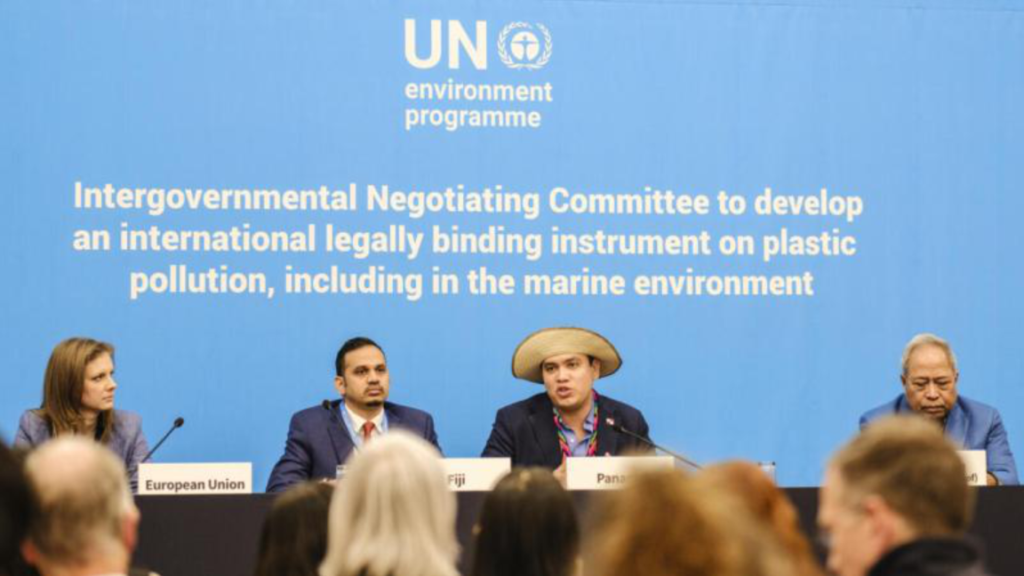Plastic pollution is a global crisis, where humanity expects to consume over 500 million tonnes of plastic in 2024 alone, with a large share quickly becoming 400 million tonnes of waste. To address this burgeoning concern, the UN Environment Programme has made efforts to establish a legally binding treaty in its fifth session of the Intergovernmental Negotiating Committee (INC-5), held in Busan, South Korea. However, efforts have encountered significant obstacles, underscoring the necessity for more coordinated and decisive negotiations to reach a definitive agreement, highlighting deep-seated divisions among participating nations.
A central point of contention is the proposal to cap plastic production. Over 100 countries advocate for such limits to effectively address the escalating plastic waste crisis. However, major plastic-producing nations, including Saudi Arabia and Russia, oppose these restrictions, favoring enhanced waste management and recycling initiatives. This discord has impeded progress, with some countries employing procedural tactics to delay discussions on production caps.
The global push for a binding plastic treaty resonates deeply in India, a country grappling with its plastic waste crisis. India generates approximately 3.5 million tonnes of plastic waste annually, with only about 60% of it being recycled. The remaining 40% contributes to pollution, affecting land, waterways, and marine ecosystems. The Indian government has taken significant steps, such as banning single-use plastics in 2022 and implementing Extended Producer Responsibility (EPR) guidelines to hold manufacturers accountable for post-consumer plastic waste.
At the INC-5, India advocated for balanced measures addressing production and waste management. However, India has expressed concerns about imposing stringent production caps, citing potential impacts on its growing economy and employment in the plastics sector. Instead, the country emphasizes the need for sustainable alternatives and investment in recycling infrastructure.
Despite the setbacks, there remains a window of opportunity. The global plastic waste could almost triple, reaching around 1.2 billion tonnes by 2060 which demands the urgency for a robust treaty to counter such alarming statistics. But for this to succeed, coordinated global efforts, coupled with localized solutions, remain the key. Thus, the INC plans to reconvene in 2025 to bridge divides and finalize the treaty to develop the technical and financial support necessary for a sustainable transition.

